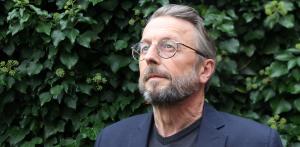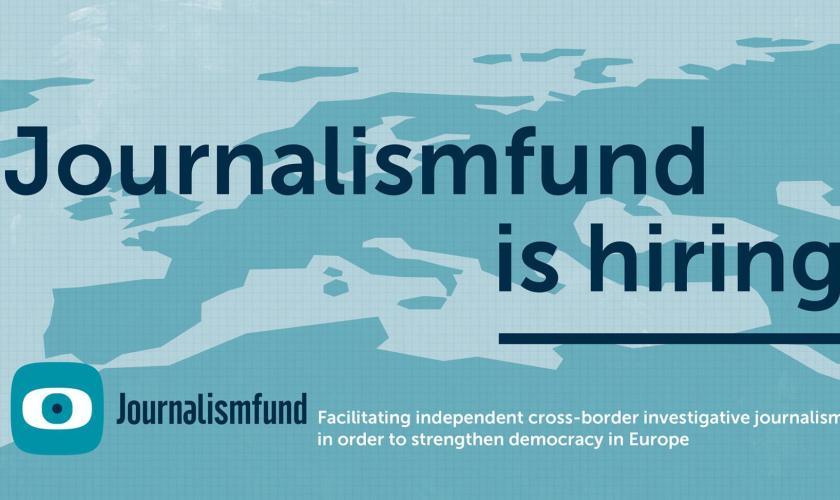Speech of Alain Lallemand (Le Soir).
I will begin with some very general considerations, understanding that, this evening, we also have to explain our Belgian work to some foreign friends.
Let me state first that we can’t talk about investigative reporting in Belgium without stressing the protection given by our national laws. I’ve been too often suited, and I remind you that, in this country, you never have to bring to the judge perfect pieces of evidence in order to defend the stories you published. From my point of view, this gives us a basic and precious freedom of speech. We only have to prove that we did everything we could in order to check the story, and, keeping in mind the kind of access we had to evidences, prove that we have been careful in the way we published the story. If this is the common rule in Belgium, France or United States, let me remind you that this is not the case, for example, in Germany, where you have to bring to the court perfect pieces of evidence. Copy of evidence is not enough. In Berlin, if you want to be able to quote a classified document, for example, you have to be able to produce an original of the document, or a copy that will be recognised as genuine by his author.
So, God bless Belgian press laws.
Another legal point I want to stress: as European union member, Belgium has to follow jurisprudence coming from Strasbourg. This means that the secrecy of your sources of information is legally protected. I don’t have to remind you that, when I started in this career, in the years eighty, it wasn’t the case.
Now, let’s talk about money. To my knowledge, there’s not even one Belgian media, in the daily business of general news, whose owner is not publicly now, and subject to press investigation. In other terms, we have a quite stable ownership in the Belgian media, and my experience is that those owners not only admit investigation in their columns, but also respect and appreciate that kind of work. I do not state that, only in order to remind you what is the situation in Eastern Europe, but I state that, this time, because I feel that a threat coming from the owner of a Belgian media is not a theoretical threat anymore. We saw those five last years Belgian companies reaching commercial agreement with financial partners that are suspected of criminal operations. Even in other states of the European union, corruption is growing in the financial and political world. Coming back to Belgium, the pressure on reporters, coming from the criminal world, is higher than ever. Should I remind you that four years ago already, the Belgium police was already publishing statistics showing that a few of our colleague reporters were subject to passive corruption attempts?
I was, I think, one of the active members of that generation of reporters that recommended contacts with the elements of organized crime, in order to have an inner view of organized crime. I still think that fair report about organized crime requires this kind of extremely dangerous contacts. But I’m now seeing Belgian reporters playing the game of O.C., publishing stories from one gang in order to hurt another gang. And I’m a little bit afraid: this is the beginning of a kind of criminal influence within the press. I suspect this threat to be sharpen by the power of money. What’s the best way to corrupt a reporter but airplanes tickets, access to persons and documents, and so?
Having said that, I must add that keeping a distance between OC and the press requires not only budgets (in order to develop a real freedom of investigation) but also a sharp and up-to-date culture of modern journalism, keeping an eye on the ethical debate, keeping the other eye on the developments of the technology of information.
I would also like to mention another threat, clearly limited to Belgian frenchspeaking media: competition, emulation requires a minimum production of investigation in a given community. In other words: I cannot develop a culture of investigative journalism, get better stories, if my newspaper is one of the few to do so. Frenchspeaking Belgian press went clearly under that level of minimum investigation production. So we may have had the temptation to search for competition with foreign frenchspeaking newspapers dealing basically with subjects that are not related to Belgium. It took me some time to identify this problem, and I may say today that the vitality of the dutchspeaking Belgian press is what kept me alive.
In other words: why should I investigate on the problems of Jean-Christophe Mitterand when I have so many weapons traffickers in Belgium? But if I start an investigation over the Belgians, I have to be controlled by my Belgian colleagues. Get their feedback. Or, on the other hand, follow the tracks they opened. At that level, I do not find anymore this kind of competition within the frenchspeaking press. The Flemish press is the only one to offer me, let’s say, the “tracks and the mirror”.
Entering into emulation with the other media is not enough. We also need – and maybe this time does it concerns also the Flemish press – to develop a culture of investigation into every company. We can’t rely anymore on the presumed talent of future generations, hoping that, tomorrow, new De Bock will naturally come on the market. We have to prepare that new generation, to cultivate it. Implementing mentoring systems, organizing process of ethical standards, etc. are part of the work.
Now, let’s have a glance at the way we work: our mission, as Belgian investigative reporters, is to investigate matters related to Belgium territory, Belgian citizens, and any story of interest to our Belgian readers.
If I look at Spain, France, Switzerland, United States, I clearly think that domestic news are correctly investigated by my Belgian colleagues. The public opinion may say that we could do better, of course. But reading “Le Monde”, “El Pais” or “Le Temps”, I don’t feel ashamed.
The Belgian press investigates judiciary events, political decisions, sport teams, and had some success investigating financial and economical issues. I should only stress the fact that we may be to reactive when it comes to investigate environmental issues.
On domestic news, at least, we may be satisfied.
Our problems appear when it comes to talk about the tremendous responsibility we have, being the state where the European union headquarter is located. Or when we have to study the way we cover the incredible network of Belgian acting outside the country. Given our involvement in Africa, we should be a permanent source of future investigation for the United Nations.
I’m always astonished by the ability of reporters to criticize the foreign policy of a state but not the activities of the citizens of the very same state. France is, to my knowledge, the only exception to the rule: it seems that the press, in Paris, is better at denouncing individuals than policies. Maybe this reveals, in fact, nothing else but the serious problems of investigation of the French press.
In Belgium, we are so respectful of our international interests, so respectful of our international involvement, that one could come to the conclusion that our state has no foreign aggressive policy. This is not the case. Since 1999 at least, signals are given by foreign groups, foreign and national NGO’s, showing the path to a forgotten territory of investigation: Belgium in the world, Belgians in action outside the national territory. It covers fields like drugs, weapons, mineral resources, technology.
I think about two ways of organizing investigative reporting at that level. First, allocate part of our “international reports” budget to the development of cells of international, “judiciary-like”, investigative reporters. Six months after my newspaper took this decision, I can state that it pays. There’s a whole bunch of policemen, judges, members of NGO’s that are just awaiting us, awaiting our presence outside the (so little) Belgian territory.
Another way is to enter pattern of global investigative journalism teams. This is the reason why we are, this evening, so much centred on the initiative of Mr Lewis. Let me tell you a few words about my experience within the ICIJ: joining their staff in may 2000, and working seriously for them since a few months, I came to understand that, if ICIJ represents a kind of future, we still have to work hard in order to improve this idea of international collaboration.
- First, we have to make sure our ethical standards are similar, and that our aims are purely professionals. I started this cooperation with a kind of suspicion: journalism and intelligence are so similar that you have to be sure you don’t mix the two. I am ready to investigate every aspects of Belgium life, and transmit the results to my Belgian readers. But what about, for example, working with the Israeli or the south African press when we deal with diamond industry?
- A second problem is the adequate timing for publication. Every reporter has his own calendar, knows when and why he is (or not) ready to publish at a certain time. How do we do when it comes to publish a story hot in one country, cold in another?
- My last question concerns the courts, and the criminal responsibilities related to a story that would not be totally accurate. How do we track the responsibility of each participant? We still have to find a practical way to deal easily with those problems.
As a conclusion, I will simply reaffirm this: investigative reporting, in this country, is still feasible. It is still the honour of our press. The subjects, more complex that ten or fifteen years ago, are basically the same, even if I bet on an extension of our scope of investigation. But the way we organize ourselves has to be evaluated, in order to adapt our research to globalisation. Oups, I mentioned a ugly word: “globalisation”. Sorry, but we have to deal with that fact. And, talking about investigative reporters, if I still believe in the abilities of individuals, I don’t believe anymore in “lonesome cowboys”…
Alain Lallemand

